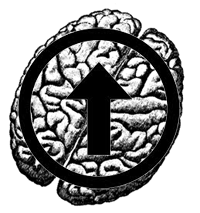 Is there any philosophy of delirium? I remember asserting breezily in the past that there was philosophy of everything – including the actual philosophy of everything and the philosophy of philosophy. But when asked recently, I couldn’t come up with anything specifically on delirium, which in a way is surprising, given that it is an interesting mental state.
Is there any philosophy of delirium? I remember asserting breezily in the past that there was philosophy of everything – including the actual philosophy of everything and the philosophy of philosophy. But when asked recently, I couldn’t come up with anything specifically on delirium, which in a way is surprising, given that it is an interesting mental state.
Hume, I gather, described two diseases of philosophy, characterised by either despair or unrealistic optimism in the face of the special difficulties a philosopher faces. The negative over-reaction he characterised as melancholy, the positive as delirium, in its euphoric sense. But that is not what we are after.
Historically I think that if delirium came up in discussion at all, it was bracketed with other delusional states, hallucinations and errors. Those, of course, have an abundant literature going back many centuries. The possibility of error in our perceptions has been responsible for the persistent (but surely erroneous) view that we never perceive reality, only sense-data, or only our idea of reality, or only a cognitive model of reality. The search for certainty in the face of the constant possibility of error motivated Descartes and arguably most of epistemology.
Clinically, delirium is an organically caused state of confusion. Philosophically, I suggest we should seize on another feature, namely that it can involve derangement of both perception and cognition. Let’s use the special power of fiat used by philosophers to create new races of zombies, generate second earths, and enslave the population of China, and say that philosophical delirium is defined exactly as that particular conjunction of derangements. So we can then define three distinct kinds of mental disturbance. First, delusion, where our thinking mind is working fine but has bizarre perceptions presented to it. Second, madness, where our perceptions are fine, but our mental responses make no sense. Third, delirium, in which distorted perceptions meet with distorted cognition.
The question then is; can delirium, so defined, actually be distinguished from delusion and madness? Suppose we have a subject who persistently tries to eat their hat. One reading is that the subject perceives the Homburg as a hamburger. The second reading is that they perceive the hat correctly, but think it is appropriate to eat hats. The delirious reading might be that they see the hat as a shoe and believe shoes are to be eaten. For any possible set of behaviour it seems different readings will achieve consistency with any of the three possible states.
That’s from a third person point of view, of course, but surely the subject knows which state applies? They can’t reliably tell us, because their utterances are open to multiple interpretations too, but inwardly they know, don’t they? Well, no. The deluded person thinks the world really is bizarre; the mad one is presumably unaware of the madness, and the delirious subject is barred from knowing the true position on both counts. Does it then, make any sense to uphold the existence of any real distinction? Might we not better say that the three possibilities are really no more than rival diagnostic strategies, which may or may not work better in different cases, but have no absolute validity?
Can we perhaps fall back on consistency? Someone with delusions may see a convincing oasis out in the desert, but if a moment later it becomes a mountain, rational faculties will allow them to notice that something is amiss, and hypothesise that their sensory inputs are unreliable. However, a subject of Cartesian calibre would have to consider the possibility that they are actually just mistaken in their beliefs about their own experiences; in fact it always seemed to be a mountain. So once again the distinctions fall away.
Delusion and madness are all very well in their way, but delirium has a unique appeal in that it could be invisible. Suppose my perceptions are all subject to a consistent but complex form of distortion; but my responses have an exquisitely apposite complementary twist, which means that the two sets of errors cancel out and my actual behaviour and everything that I say, come out pretty much like those of some tediously sane and normal character. I am as delirious as can be, but you’d never know. Would I know? My mental states are so addled and my grip on reality so contorted, it hardly seems I could know anything; but if you question me about what I’m thinking, my responses all sound perfectly fine, just like those of my twin who doesn’t have invisible delirium.
We might be tempted to say that invisible delirium is no delirium; my thoughts are determined by the functioning of my cognitive processes, and since those end up working fine, it makes no sense to believe in some inner place where things go all wrong for a while.
But what if I get super invisible delirium? In this wonderful syndrome, my inputs and outputs are mangled in complementary ways again, but by great good fortune the garbled version actually works faster and better than normal. Far from seeming confused, I now seem to understand stuff better and more deeply than before. After all, isn’t reaching this kind of state why people spend time meditating and doing drugs?
But perhaps I am falling prey to the euphoric condition diagnosed by Hume…

 Maybe there’s a better strategy on consciousness? An early draft
Maybe there’s a better strategy on consciousness? An early draft  There’s a fundamental ontological difference between people and programs which means that uploading a mind into a machine is quite impossible.
There’s a fundamental ontological difference between people and programs which means that uploading a mind into a machine is quite impossible. The self is real – it just, like Walt Whitman, contains multitudes. That’s the case
The self is real – it just, like Walt Whitman, contains multitudes. That’s the case